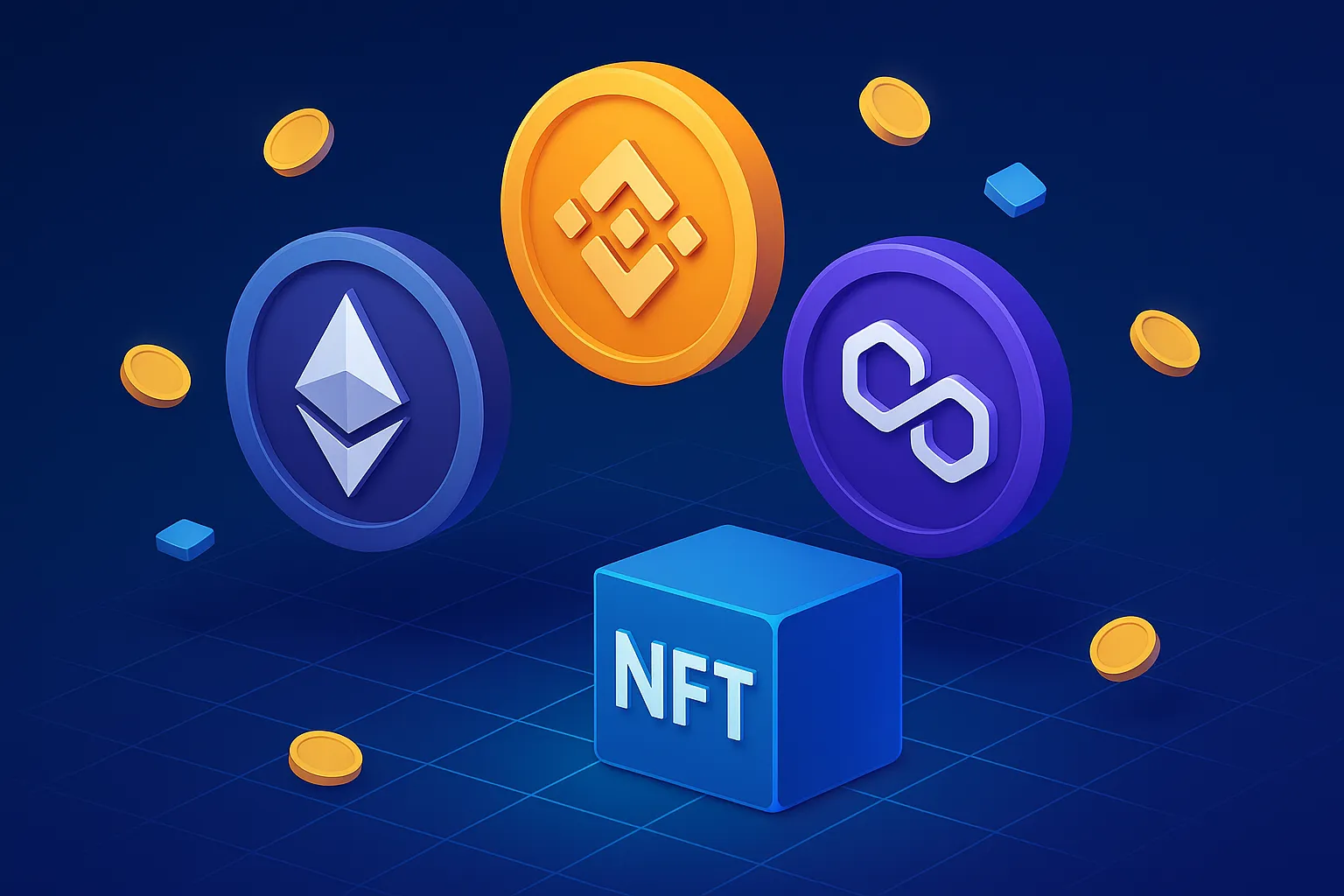NFTs are no longer a passing trend. They’re digital assets with real value, tradeable on decentralized platforms, with OpenSea leading the way. But here’s the kicker: the market isn’t just growing—it’s diversifying. New use cases, communities, and creators are hungry for platforms that cater to their niche needs. That’s why 2025 is the perfect time to consider launching your own OpenSea clone Scripts .
Whether you’re an entrepreneur building a Web3 startup, a developer team exploring crypto-native tools, or an investor looking for your next scalable platform, OpenSea clones open doors to custom NFT marketplace solutions. With the right script, you get a shortcut to a fully operational NFT marketplace—without starting from zero. The demand for niche platforms, gamified NFT apps, or creator-centric NFT storefronts is booming, and generic solutions just don’t cut it anymore.
At Miracuves, we understand that launching a powerful, future-proof NFT marketplace isn’t about copying and pasting code. It’s about building with purpose, scalability, and the right feature set from day one. Let’s explore the best OpenSea clone scripts in 2025 and what makes them stand out.
Why Build an OpenSea Clone in 2025?
Let’s start with the obvious. OpenSea dominates, but it doesn’t serve every community. From digital art and music to gaming assets and domain NFTs, the needs vary widely. An OpenSea clone allows you to tailor your NFT marketplace to a specific vertical, creator group, or geographic region. This verticalization is the key to relevance in a fragmented NFT landscape.
Moreover, NFT adoption is expanding beyond Ethereum. Multi-chain support, eco-friendly minting, and native wallet integration are no longer optional. Users now expect features like lazy minting, social trading, and real-time bidding. Building your platform from scratch with all this functionality is time-consuming and expensive. That’s where an OpenSea clone script becomes a game-changer.
Read More : Top OpenSea Features Every NFT Builder Needs
Top Features to Look for in an OpenSea Clone Scripts

If you’re shopping for a clone script in 2025, don’t just settle for something that “looks like OpenSea.” You need advanced functionality, smooth UX, and a roadmap for growth. Here are the core features to demand:
Multi-chain compatibility: Ethereum, Polygon, BNB Chain, and more—users want options for minting and trading
Lazy minting: Let users list NFTs without upfront gas costs, only triggering minting on purchase
Wallet integrations: MetaMask, WalletConnect, Trust Wallet, and Coinbase Wallet should be supported out-of-the-box
Auction and fixed-price listings: Offer flexibility with Dutch auctions, timed auctions, and classic buy-now setups
NFT categories and filters: Make discovery easy with powerful search and sort functionality
Activity tracking: Users want real-time updates on bids, likes, transfers, and sales
User dashboards: From portfolio management to royalties tracking, creators need a comprehensive backend
Admin control panel: A centralized dashboard for managing listings, banning wallets, updating fees, and more
IPFS or Arweave storage: Ensures decentralization of media assets for better longevity and censorship-resistance
Use Cases: Who’s Launching OpenSea Clones?
There’s no one-size-fits-all when it comes to OpenSea clones. They’re being customized for unique audiences. Here are the most common use cases in 2025:
1. Digital Art Marketplaces
Artists want platforms focused on curation, royalties, and community. Custom OpenSea clones allow token-gated drops, embedded galleries, and split royalties.
2. Gaming & Virtual Assets
Game developers and modding communities use NFT marketplaces for skins, weapons, avatars, and virtual land. Integration with game engines and in-game purchases is common.
3. Music & Media NFTs
Musicians are launching NFT drops with built-in streaming previews, royalty splits, and unlockable content. Platforms often include fan engagement tools like comments and likes.
4. Sports Collectibles
From digital trading cards to tokenized memorabilia, sports brands use OpenSea clones to build immersive fan ecosystems.
5. Domain NFTs & Digital Identity
Web3 domain names, avatars, ENS alternatives—these require search-optimized interfaces and metadata display customizations.
6. Enterprise or Brand-Owned Marketplaces
Large brands are launching private-labeled NFT marketplaces to control branding, fees, and the user experience. OpenSea clone scripts offer a white-label base to build from.
Cost Factors & Pricing Breakdown
OpenSea-Style NFT Marketplace — Market Price
| Development Level | Inclusions | Estimated Market Price (USD) |
|---|---|---|
| 1. Basic NFT Marketplace MVP | NFT minting, wallet connect, basic listing, simple search & filters, user profiles, collection creation, admin panel | $60,000 |
| 2. Full-Feature NFT Marketplace Platform | Auctions, lazy minting, multi-chain support, royalties, activity feed, bidding system, advanced search, metadata engine, creator dashboard, analytics | $140,000 |
| 3. Enterprise Multi-Chain NFT Ecosystem | Cross-chain bridge, high-speed indexing, rarity scoring, launchpad, KYC/verification, deep analytics, scalable microservices, advanced caching, fraud prevention | $250,000+ |
These estimates reflect global development costs for building a scalable NFT marketplace — covering blockchain integrations, smart contracts, advanced search, secure wallet connections, metadata parsing, and a high-performance asset indexing engine.
Miracuves Pricing for an OpenSea-Style Platform
Miracuves Price: Starts at $3,299
Miracuves offers a ready-to-deploy OpenSea-style NFT marketplace featuring NFT minting, buying/selling, lazy minting, secure wallet integration, creator tools, collections, metadata generation, and multi-chain support — engineered on a stable, scalable PHP and Web3-enabled backend.
Note
This includes full non-encrypted source code, Web3 integration setup, smart contract deployment support, admin panel configuration, and marketplace customization — giving you a complete NFT ecosystem ready to launch.
Launch your NFT marketplace in 3–9 days instead of spending $250,000+ and building from scratch — start with Miracuves and scale faster.
Delivery Timeline for an OpenSea-Like Platform with Miracuves
Estimated deployment timeline: 3–9 days, based on:
- Blockchain selection (ETH, Polygon, BSC, etc.)
- NFT categories, metadata & collection structures
- Royalty, auction & bidding logic
- Wallet integrations (Metamask, WalletConnect, Coinbase Wallet)
- UI branding & marketplace theming
- Launchpad, rarity, or multi-chain module activation
Tech Stack
This platform is built using PHP, MySQL, Web3.js/ethers.js, and Flutter, optimized for Web3 interactions, smart contract calls, asset indexing, and smooth NFT marketplace performance.
Monetization Strategies for NFT Marketplaces
So how do you make money from an OpenSea clone? Turns out, there are plenty of options.
Commission Fees
Take a cut of every transaction—flat or percentage-based. This is the most common and most predictable model.
Listing Fees
Charge users a fee to list their NFTs. Ideal for curated or premium platforms where spam needs to be controlled.
Premium User Accounts
Offer VIP access to tools, analytics, featured drops, or front-page visibility.
NFT Launchpads
Help creators launch new collections through curated minting events, charging a fee or revenue share.
Ad Placements & Sponsored Drops
Run native ads or feature brand-sponsored collections on your homepage.
Token Integration
Launch your own platform token for governance, trading discounts, or staking rewards.
Security, Scalability & Compliance
Building on Web3 doesn’t mean ignoring Web2 best practices. A successful OpenSea clone in 2025 needs robust security protocols, horizontal scaling support, and KYC/AML options if targeting enterprise users.
Smart contract audits are a must—nobody wants to wake up to a drained treasury. Opt for well-tested contracts with public transparency.
Rate-limiting and CAPTCHA protect you from bot spam. CDNs and horizontal cloud scaling help maintain app responsiveness during traffic spikes.
Compliance options like identity verification, tax reporting tools, and regulatory APIs are increasingly necessary for mainstream NFT adoption.
Read More : AliExpress vs OpenSea: Business Model Comparison
Final Thoughts
The NFT market may look different than it did in 2021, but it’s far from over. In fact, it’s maturing. Entrepreneurs who enter now with a smart, niche-focused OpenSea clone have a real shot at building something meaningful, profitable, and sticky.
At Miracuves, we help innovators launch high-performance app clones that are fast, scalable, and monetization-ready. Ready to turn your idea into reality? Let’s build together.
FAQs
What is an OpenSea clone?
An OpenSea clone is a ready-made NFT marketplace script that replicates the core features of OpenSea, allowing entrepreneurs to launch a similar platform quickly.
Is an OpenSea clone legal to launch?
Yes, as long as you’re not using proprietary brand assets or code from OpenSea, building your own platform with similar features is completely legal.
Can I customize the OpenSea clone to support only art NFTs?
Absolutely. Most clone scripts are modular and allow customization to focus on specific NFT categories like art, music, or collectibles.
Do I need to know blockchain development to launch one?
No. With a good script provider like Miracuves, you can get full deployment and customization support—even if you have no coding background.
What chains can I support in an OpenSea clone?
Modern scripts support Ethereum, Polygon, BSC, and sometimes Solana or Avalanche. Make sure your provider includes multichain compatibility.
How long does it take to launch an NFT marketplace?
With a pre-built OpenSea clone script, your platform can go live in as little as 3–9 days depending on your custom requirements.
Related Articles








